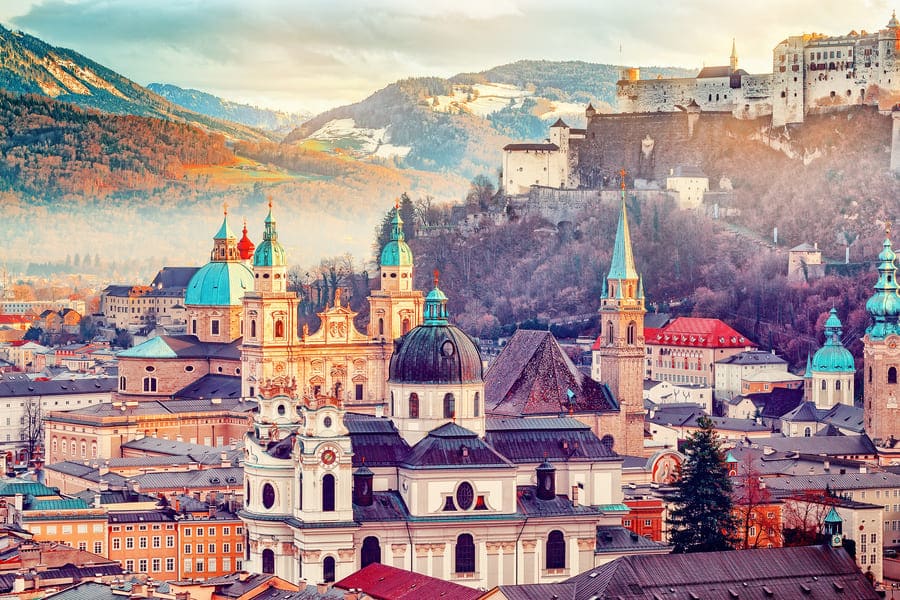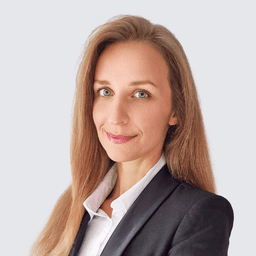Residence permit in Austria: a quick path to a better quality of life
I’m a self-made person. I managed to build a successful business, so now I can create a better life for my family and a happier childhood for my daughters. Moving from India was just a matter of time. Here, you can make more and more money but can’t find a place which would combine high living standards and sound ecology. Austria seems to be a perfect choice.

Kabir,
A CEO of an agricultural company in India
Clients’ names and photos have been changed

This case was provided by our expert

Head of the Austrian office
Residence permit in Austria: a quick path to a better quality of life
Share:
Kabir’s family lived in a large Indian city. Kabir and his wife were not pleased with the quality of their family’s life. They thought the Mumbai town was too populated and polluted. The climate also bothered them: during monsoon, the city was often flooded, so the family tried to spend this time of the year abroad.
Kabir decided they should move to a less crowded town with better environmental conditions. He wanted to find a better place in terms of living standards, climate, as well as the quality of education, food and healthcare.
Why Kabir chose Austria as his family’s new place of residence
The company which Kabir contacted for help before turning to Immigrant Invest offered him to get residence permits in Lithuania. They said the status of a resident was easy to obtain and organised a trip to Lithuania for Kabir’s family. But Kabir and his wife were not inspired to move to Lithuania as they did not like the country. The standard of living in Lithuania was ranked below the European average.
After their trip to Lithuania, Kabir decided to take his family on a short vacation in Austria. Kabir and his wife Myra were there on their honeymoon many years ago, so the couple had warm memories of the country and wanted to show it to their children.
The family fell in love with Austria, and Kabir thought the country could become their new home. It seemed to the couple that Austria met their expectations of a better life, and their feelings are in agreement with international ratings. Austria is in the top 10 countries with the best quality of life and healthcare systems, as well as the least level of pollution. The country’s economy is the 13th world’s most stable, according to the Fragile States Index.

Salzburg has six universities and a large population of students. As it is Mozart’s birthplace, one of the universities is the Mozarteum University, which is the Academy of Fine Arts for music, drama and related subjects. The tuition fee is €385 per semester
How to move to Austria and why it isn’t that easy
Kabir asked the lawyers that consulted him on moving to Lithuania how he could relocate his family to Austria. They said it was much more complicated and tried to insist he chose Lithuania. Kabir searched for information on how to move to Austria himself, landed on the Immigrant Invest website and turned to us for consultation.

Lyle Julien,
Investment programs expert
Many wealthy people from all over the world want to move to Austria. To do it, they need to get a residence permit card.
Residency for financially independent persons is the most favourable choice for most candidates. It is simultaneously the easiest and most challenging way to become an Austrian resident. The terms of obtaining the status can be easily fulfilled, but Austria does not issue residence cards for everybody who simply meets the conditions. Applicants must fall into quotas, and only 450 quotas are allocated per annum.
A quota is granted not to a family but to a person. It means Kabir had to get four quotas: for himself, his wife and their two daughters. To get on the list of 450 successful applicants, Kabir needed to file his family’s application as early as possible at the beginning of a new calendar year. In 2022, the first working day in Austria was January 3d, so applications submitted on this date had the most chance of being approved.
Applicants must apply in person in Austrian consulates worldwide or the integration departments in Austria. But you can’t just come to one of these authorities and file an application: you must have an appointment for the exact date, time and place. These appointments are made online and in advance.
Registration opens on a day and time, announced on the websites of Austrian consulates and integration departments. It usually opens somewhere in November, and dates vary from authority to authority. So you need to decide where you will apply beforehand.

Lyle Julien,
Investment programs expert
Acquiring Austrian residence permits for financially independent persons is not straightforward. If applicants don’t manage to make an appointment on the first working day of the year, they will very probably lack quotas.
If there is a single mistake or uncertainty in the application, it will most likely be rejected. That’s why applicants seek lawyers’ assistance — we help register on time and prepare a convincing package of documents, significantly improving the odds of success.
To be eligible for an Austrian residence permit for financially independent persons, an applicant needs to meet the following conditions:
Do not carry out economic activity in Austria, such as running a business or having a job.
Earn at least €2,060 a month.
Rent or buy a house in Austria adequate for their family size.
Take out insurance that covers all risks and 100% of treatment costs and applies to all family members included in the application.
Prove the basic knowledge of German at an A1 level.
Have no criminal records.
An applicant can include a spouse and children under 18 in the application. The spouse and children over 14 must also prove no criminal records and knowledge of German.
The way Kabir’s family obtained residence permits in Austria
Kabir turned to Immigrant Invest in March 2021. We conducted a preliminary Due Diligence to make sure Kabir was eligible for getting an Austrian residence permit for financially independent persons and came to a conclusion that he was. So, we signed an agreement and started our cooperation.
Choosing a place of residence. At first, Kabir and Myra needed to decide in which Austrian region they would like to be settled. It is essential as each region has its own bureaucratic peculiarities and a fixed number of quotas. One of the benefits of contacting our company is that we are well aware of the quotas in any region of Austria.
The couple desired to live in a green and quiet area. In cooperation with an Austrian lawyer, we helped Kabir and Myra pick the best option which secured them the highest odds of succeeding: the town of Klagenfurt in the province of Carinthia.
Getting language certificates. With the help of an attorney from the region chosen, we elaborated a personal list of documents required for Kabir’s family. The list included language certificates issued by the Goethe-Institut, the TELC GmbH or the OIF. The exam preparation must have been started beforehand.
In the summer, Kabir and Myra completed a two-month language course and received an international certificate for speaking German at the A1 level. Their older daughter studied German at school and spent part of her summer holidays in a language camp in Salzburg, where she had a great time and learned more about Austrian culture, so she easily passed the test. The couple’s younger daughter was under 14 and did not have to sit any exams.
Trip to Austria. In September, Kabir revisited Austria: he needed to rent an apartment and take out insurance. Our real estate professionals found several options suitable for his family: according to Austrian standards, a flat area for a family of four must be at least 80 sqm. We also organised for Kabir a meeting with the insurance broker.

Elena Kozyreva,
Managing Director for Real Estate projects
Kabir was ready to buy an apartment, but it wasn’t possible. Only citizens and residence permit holders of the EU are allowed to purchase real estate in Austria. So, Kabir will return to this question in a year—when his lease contract ends.
According to Austrian rules, a year is a minimum period you can rent a property for. You also need to notify your landlord three months in advance that you are going to move out.
Applying. By November, the package of documents for Kabir’s family was ready. Kabir decided to apply at the Austrian Consulate in New Delhi. When the registration opened, we made him an appointment for the morning of January 3d.
Kabir, Myra and their daughters came to the consulate at a set time and successfully filed an application. The consulate sent their application to process in Austria. In two months, they received a positive answer: Kabir managed to get four quotas.
D visas obtainment. Upon approval, the Austrian authority responsible for issuing residence permits sent an official invitation to the Austrian consulate in India, stating that Kabir’s family was eligible for residence D visas. The visas were ready within two weeks.
Relocation to Austria. To get their residence permits, Kabir’s family needed to enter Austria on their D visas, and this they did. Schengen visas are not suitable for this purpose.
After entering the country, Kabir got his family registered in the apartment he had rented, opened an account in an Austrian bank and transferred there an amount of money required for the family maintenance during the year. Having done this, Kabir’s family got their residence permit cards.
To maintain the status, the family must spend at least 183 days per annum in Austria. They will also need to renew the cards according to the scheme 1 year + 1 year + 3 years.
Step-by-step procedure for obtaining residence permits in Austria
Signing an agreement with Immigrant Invest
Taking language courses and sitting exams
Short trip to Austria
Preparing the package of documents
Online registration for a meeting at an Austrian consulate
Applying for residence permits in Austria
Getting approval and D visas
Moving to Austria
The total cost for residence permit in Austria
Solvency. When applying for a residence permit in Austria, an applicant needs to prove he earns more than a minimum income and has savings of twelve times the required amount—for a year. A single applicant must earn at least €2,060 a month. If married, the monthly income must be at least €3,251, and another €318 must be added for each underage child.
Household expenses such as property rental and health insurance should also be considered. So, we recommend showing the presence of €100,000 in the account for a family of four, and this did Kabir.
Fees. During the application process, Kabir also paid various government fees. The processing fee is €120 per person, the fee for a D visa is €150, and the fee for a residence permit card is €20. Another €20 is charged for fingerprinting.
€1,200 — application expenses for a family of four
€480 — processing fee
€80 — fingerprinting
€600 — obtaining visa D
€80 — cards issuance
The lifestyle of Kabir’s family in Austria
For Kabir’s family, immigration to Austria became a successful experience. They have greatly improved the quality of their lives, expanded business opportunities, settled in a clean area and got a chance to give their children quality education. The universities in this country are considered among the leaders of European higher education establishments, and a residence permit in Austria enables its holder to study for free.
Kabir has transferred his assets to a safe economic zone. He also plans to set up an international company in one of the best areas for optimising tax liabilities. Thus, he can run a business in Cyprus or Malta but live in Austria. In Austria, he is not allowed to be engaged in an active business but can open a company, stay as a shareholder, and receive dividends.
Myra is satisfied with the quality of the environment, water, food, and living standards. Their daughters continued education in a private international school. The elder has already started preparing for entering the university and is thinking of choosing between Vienna and London. On weekends, the family goes on vacation to the Alps and enjoys the amazing nature of Austria.
After five years of living in Austria, Kabir’s family can qualify for obtaining permanent residency. This status is termless. But if they decide to get Austrian citizenship in the future, they will have to renounce their Indian nationality, as dual citizenship in Austria is forbidden.
Immigrant Invest is a licensed agent for government programs in the European Union and the Caribbean.
Schedule a meeting
Let's discuss the details
Schedule a meeting at one of the offices or online. A lawyer will analyze the situation, calculate the cost and help you find a solution based on your goals.
Prefer messengers?


